In
News
 On 21 and 22 November 2022, global dis:connect will host the international workshop Oceans Disconnect. The workshop is organised by David Armitage (Harvard), Sujit Sivasundaram (Cambridge) and Roland Wenzlhuemer (Munich). The Call for Papers is now open and can be found in our calls section or directly here. Submission deadline is 15 May 2022.
On 21 and 22 November 2022, global dis:connect will host the international workshop Oceans Disconnect. The workshop is organised by David Armitage (Harvard), Sujit Sivasundaram (Cambridge) and Roland Wenzlhuemer (Munich). The Call for Papers is now open and can be found in our calls section or directly here. Submission deadline is 15 May 2022.
Over the past three decades, the rapidly expanding historical literature on oceans and seas has traditionally been framed around the geographical units of the world's water bodies; it has been directed towards tracking long-distance connections, so as to problematise the political and specialist organisation of historical knowledge around “nation”, “area” and “civilisation.” Yet the promise of the first, boosterish, phase of oceanic history has lately ebbed. Globalisation now looks more reversible and halting. And transnational historians more generally are examining disconnection rather than connection as a dynamic in world history. Along these lines, new work in oceanic history is insisting on particularity, friction, interruption, materiality and resistance. There is growing attention to the critical foundations of connection, where people, things, ideas, legal systems, could demonstrate instability, violence, and invisibility at the very nodes of globalisation. And historians are increasingly focusing on the choke-points within the world's oceans: straits and narrows, gulfs and bays; pirates' nests and contested waters; natural disaster and commercial risk; closed seas and maritime limits, among other topics. This workshop will interrogate the underside of connection and the dynamics of disconnection in oceanic history.
.
Continue Reading
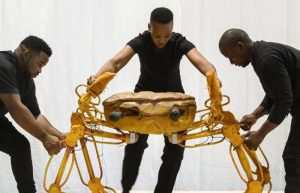 We are very happy to announce that the Ukwanda Puppets Collective will be performing at the Staatstheater Augsburg. Their performance titled: Isikhalo Somlambo/Der Ruf des Wassers will premiere on the 12 July 2022. Performances will continue till July, 16th. The collective are artists in residence at Centre for Humanities Research at the University of the Western Cape, one of our Kolleg's international partner institutions.
We are very happy to announce that the Ukwanda Puppets Collective will be performing at the Staatstheater Augsburg. Their performance titled: Isikhalo Somlambo/Der Ruf des Wassers will premiere on the 12 July 2022. Performances will continue till July, 16th. The collective are artists in residence at Centre for Humanities Research at the University of the Western Cape, one of our Kolleg's international partner institutions.





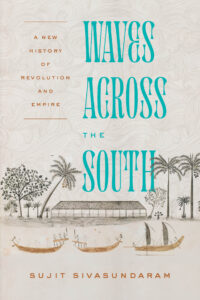 We are proud to report that our fellow Sujit Sivasundaram’s latest book ‘
We are proud to report that our fellow Sujit Sivasundaram’s latest book ‘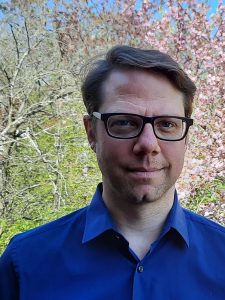 A warm welcome to our new fellow Martin Rempe who joins the Kolleg until autumn.
A warm welcome to our new fellow Martin Rempe who joins the Kolleg until autumn.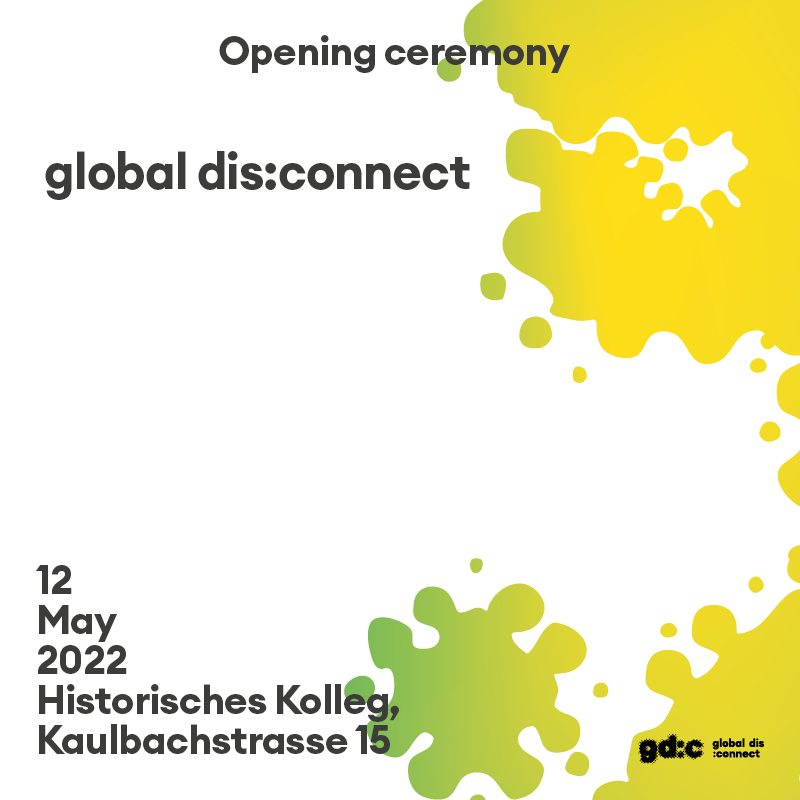 Please note that registration is now open for global dis:connect's opening ceremony on 12 May 2022. The event will take place at the Historisches Kolleg in Kaulbachstrasse. The occasion will be marked by a keynote lecture from Heidelberg art historian Monica Juneja who will speak on “Awkward, unstable, creative: Dis:connection as world-making”. The lecture will be followed by an evening reception. All are welcome, but as seating is limited you are kindly asked to pre-register below. Please note that you can leave the password field blank if you do not want to create an account.
Please note that registration is now open for global dis:connect's opening ceremony on 12 May 2022. The event will take place at the Historisches Kolleg in Kaulbachstrasse. The occasion will be marked by a keynote lecture from Heidelberg art historian Monica Juneja who will speak on “Awkward, unstable, creative: Dis:connection as world-making”. The lecture will be followed by an evening reception. All are welcome, but as seating is limited you are kindly asked to pre-register below. Please note that you can leave the password field blank if you do not want to create an account.
 A warm welcome to our new fellow Ayşe Güngör who just joined the Kolleg for then next twelve months.
A warm welcome to our new fellow Ayşe Güngör who just joined the Kolleg for then next twelve months. A warm welcome to our new fellow Enis Maci who just joined the Kolleg for two fellow stints, one in winter/spring and one in summer 2022.
A warm welcome to our new fellow Enis Maci who just joined the Kolleg for two fellow stints, one in winter/spring and one in summer 2022.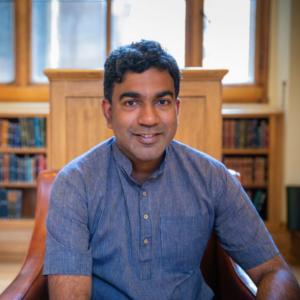 The center extends a warm welcome to Sujit Suvasundaram (Cambridge) who joins as a new research fellow for the year 2022.
Sujit has taken a circuitous path to his current post as Professor of World History and Director of the Centre of South Asian Studies in Cambridge. Bouncing between the Asia-Pacific region and Europe, he has left his mark on imperial history, oceanic history, cultural history, and the history of science. This path has taken him through the LSE, the EHESS in Paris, the Universities of Singapore and Sydney, and the National Maritime Museum in Greenwich. During his fellowship with us in Munich, Sujit will be focusing on the long history of Colombo. He is interested in the challenges of building a city such as this, at the centre of the Indian Ocean, in a marshy terrain, and the labour and community formation that met such an environmental challenge. He will be developing his perspective on connection as an unstable practice, especially when tied to capitalism and empire, because of its potential to segment and divide places and people. He is also interested in the art and visual practice surrounding this city and what it tells us of how globalisation is visualised and propagandised.
The center extends a warm welcome to Sujit Suvasundaram (Cambridge) who joins as a new research fellow for the year 2022.
Sujit has taken a circuitous path to his current post as Professor of World History and Director of the Centre of South Asian Studies in Cambridge. Bouncing between the Asia-Pacific region and Europe, he has left his mark on imperial history, oceanic history, cultural history, and the history of science. This path has taken him through the LSE, the EHESS in Paris, the Universities of Singapore and Sydney, and the National Maritime Museum in Greenwich. During his fellowship with us in Munich, Sujit will be focusing on the long history of Colombo. He is interested in the challenges of building a city such as this, at the centre of the Indian Ocean, in a marshy terrain, and the labour and community formation that met such an environmental challenge. He will be developing his perspective on connection as an unstable practice, especially when tied to capitalism and empire, because of its potential to segment and divide places and people. He is also interested in the art and visual practice surrounding this city and what it tells us of how globalisation is visualised and propagandised.